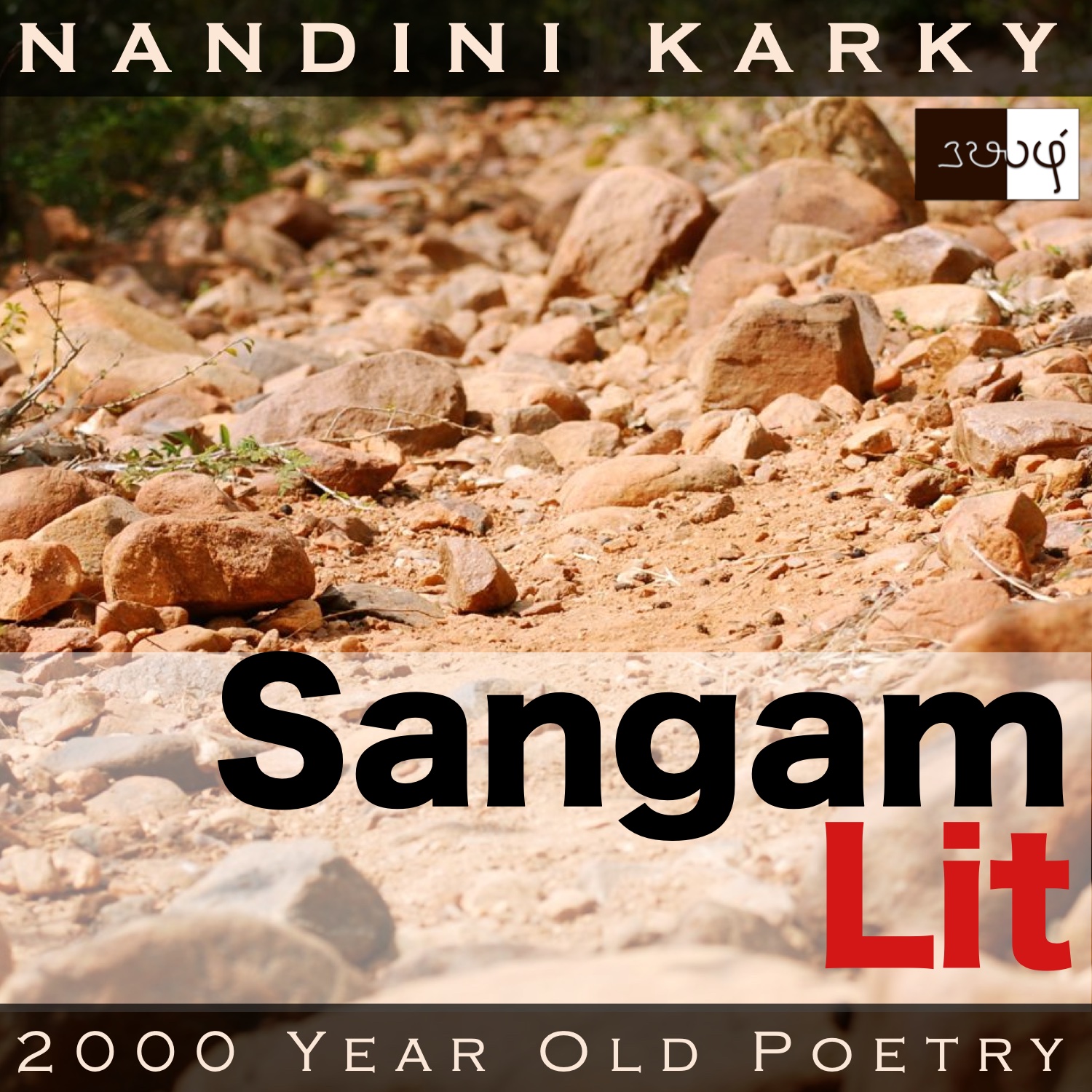Podcast: Play in new window | Download
Subscribe: Apple Podcasts | Spotify | Amazon Music | Android | iHeartRadio | TuneIn | RSS | More

In this episode, we perceive abstractions around the theme of gathering wealth, as depicted in Sangam Literary work, Kurunthogai 20, penned by Koperuncholan, a poet-king, belonging to the Early Chola dynasty during the Sangam period. The verse is situated in the drylands of ‘Paalai’ and speaks in the voice of the lady to the confidante, on hearing the news that the man had parted away to gather wealth.
அருளும் அன்பும் நீக்கி, துணை துறந்து,
பொருள்வயிற் பிரிவோர் உரவோர் ஆயின்,
உரவோர் உரவோர் ஆக!
மடவம் ஆக, மடந்தை, நாமே!
‘Is that so? Let it be’ is the beat within this verse! The first two words ‘அருளும் அன்பும்’ meaning ‘compassion and love’ talk about two different kinds of tenderness. ‘அருள்’ is the generic benevolence that is reserved for those who are not related to us, whereas ‘அன்பு’ is that tenderness meant for those close to us, especially through love or marriage. ‘பொருள்வயிற் பிரிவோர்’ meaning ‘those who part away to gather wealth’ establishes the core concern here. Curious to see how many times the word ‘உரவோர்’ meaning ‘the wise’ is repeated in this verse of few words. Ending with ‘மடவம் ஆக, மடந்தை, நாமே’ meaning ‘O maiden, let us remain foolish’, the verse intrigues us.
Wise and foolish – Indeed, sounds like a clash between opposite states! Peering into the context, we learn that the man and lady had been leading a happy, married life, when the man parted away to gather wealth. Hearing of this from the confidante, the lady says, “If he who parts away to gather wealth, foregoing compassion and love, leaving behind his beloved, is the wise one, then let him be deemed wise! Young maiden, let us remain the unwise!” With these words, the lady is giving expression to her angst, at what she deems as the thoughtless parting away by the man.
Unlike many Sangam verses, in this one, there are no trees, or animals or historical incidents. There is just pure abstraction. The lady declares that the man had neither rendered a generic compassion reserved for all life nor the specific love meant for a wife, in his parting away to gather wealth. Then, considering from the eyes of the world, she says but if this is what they call as being wise and strong, then let it be so. Including her friend in her own sorrow, the lady concludes that she chose for them instead, to remain foolish and innocent!
Within these few lines, there seems to be many layers of understanding of the other’s state and one’s own. The lady seems to muse on this prescribed activity of seeking wealth, said to be the duty of a man, which is completely at odds with the noble emotions of love and compassion. To the world, she says if this is what you consider right and wise, I chose a different path and that is to remain foolish and to ache for his absence. The Sangam world seems to classify the act of seeking wealth as a masculine attribute, something done with the head, and that of pining and aching for the loved one who has parted away, as a feminine attribute, echoing from the heart!
If we reflect about it, this tussle between seeking wealth, defined today by the words ‘work’ and ‘career’, and kindness to loved ones, reflected in the words ‘family’ and ‘care’, goes on even now. Not in the physical parting away of the Sangam age, but in a different sense. Being in the same house, why even in the same room, and being lost in different worlds, is something experienced by workers everywhere today. After two thousand years, are we closer to resolving this tussle and finding that fine balance between work and family or have we travelled even farther apart? Something to ask ourselves!




Nice one